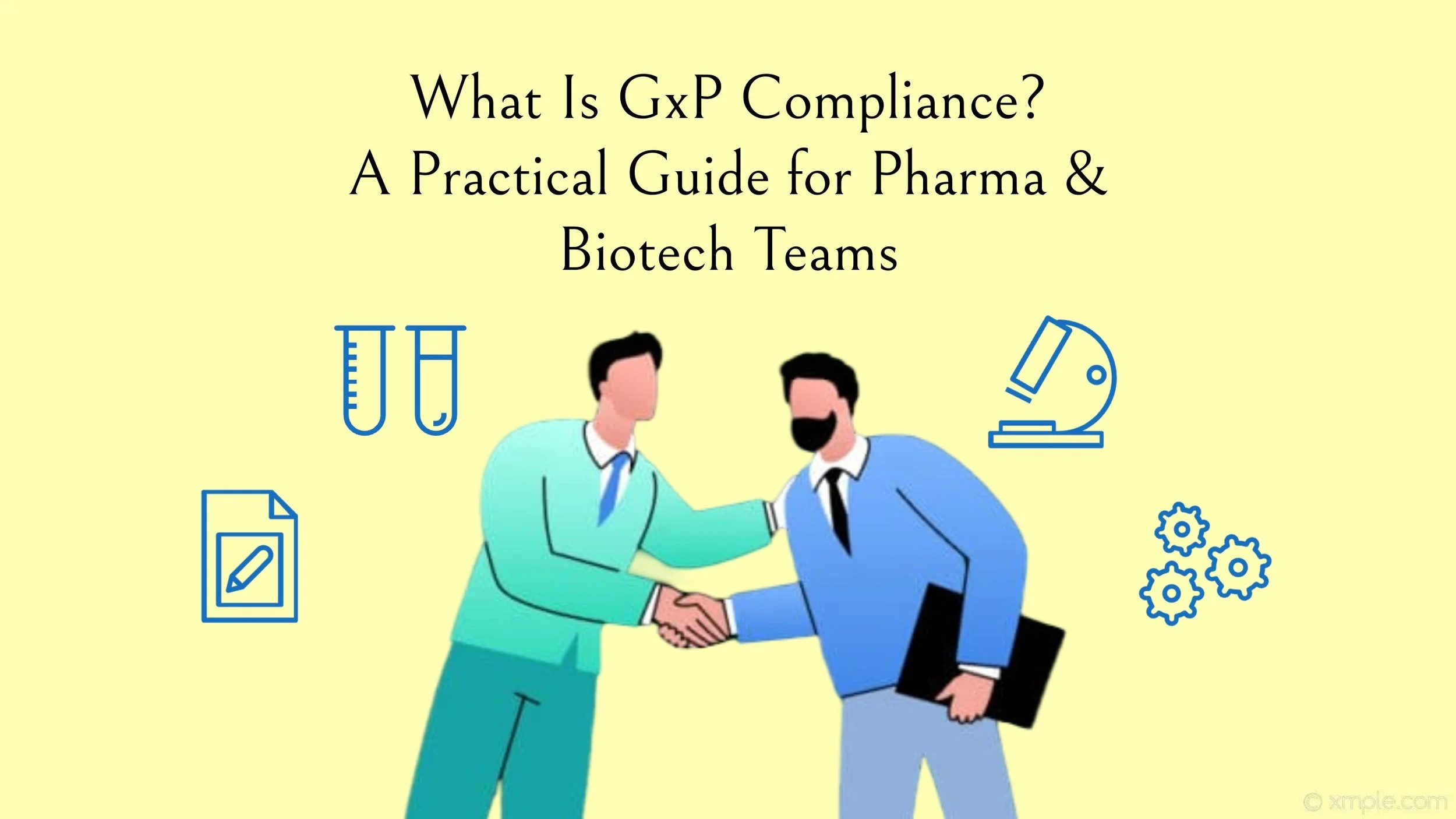What Is GxP Compliance?
A Practical Guide for Pharma & Biotech Teams
Industries like pharmaceuticals and medical technology rely on Good Practice (GxP) compliance. It is based on a set of regulations designed to ensure products are safe for the consumer. These guidelines apply to food, drugs, and other products, and they ensure that their production is accurate, consistent, and reliable.
Just as the x in GxP suggests that there are many different types of practices that it encompasses, like GMP (Good Manufacturing Practice), GCP (Good Clinical Practice), and GLP (Good Laboratory Practice).
What is GMP?
GMPs are guidelines for manufacturing high-quality, safe, and effective products. The primary goal is to reduce the possibility of contamination and errors in the manufacturing process, and it covers everything from the quality of the raw materials to the final finished product. GMP ensures that production processes are clearly defined, documented, and followed.
What is GCP?
GCP regulations only apply to clinical research that involves human subjects. It ensures that participants are treated ethically, and that the data collected is reliable and accurate. GCP includes guidelines for the informed consent of patients, as well as the reporting of injuries, side effects, and other safety data.
What is GLP?
GLP governs the regulations in non-clinical laboratory studies, and it is required in industries like pharmaceuticals, chemicals, agrochemicals, and food additives. GLP regulations cover everything that takes place from the beginning to the end of laboratory tests, including the design and reporting of the tests and the safety and accuracy of the results.
GxP Enforcement
Organizations such as the FDA, EMA, MHRA, and ISO define and maintain these guidelines. They enforce GxP compliance through certificate requirements, regular inspections, and unannounced audits, verifying that companies use validated systems, maintain traceability records, and control the risks of contamination and data tampering. Companies that fail to meet the guidelines face warnings, product recalls, and even shutdowns.
Staying Compliant
Pharmaceutical and biotech companies need to maintain GxP compliance to avoid costly penalties. This means having a strong strategy in place for adhering to GxP guidelines, including:
Regular internal or external audits.
Employee training on GxP practices and the requirements that need to be met.
Accurate and extensive documentation for all processes, including decision-making, communication, and regulatory compliance.
Standard operating procedures that support GxP guidelines.
Understanding and following GxP regulations is essential to ensuring that companies maintain product quality and safety. Although they may be challenging and demanding, these guidelines are a key component in protecting patients as well as profitability.

